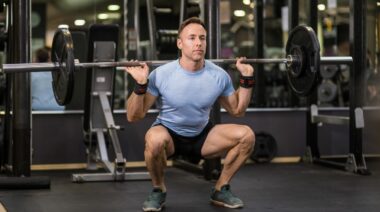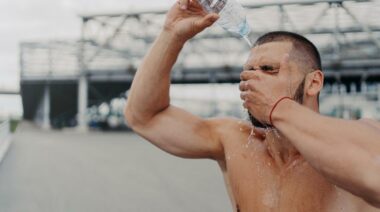A great deal of thought and discussion goes into what the best post workout drink is. Different sports have different needs and everyone seems to have an opinion. A recent review published in the Journal of Strength & Conditioning Research looked through numerous studies to determine what might be the best recovery drink for endurance and team-sport athletes.
The concern for endurance and team-sport athletes in particular was due to the frequent proximity of their training sessions. These athletes often have only a few hours to recover between workouts. Researchers looked at the two main factors affecting an athlete’s ability to recover from training – the restoration of glycogen and hydration levels.
During exercise glycogen is broken down to adenosine triphosphate (ATP) and used to supply energy to the body. Hypoglycemia, or low blood sugar, can result if glycogen uptake exceeds the body’s glycogen production. Beverages are the quickest and easiest way to aid in the resynthesis of glycogen as well as rehydrate the athlete.
Summary of research referenced in the review:
- Athletes can maximize glycogen resynthesis during the 30-60 minutes following a workout, when the body can do so independently of insulin.
- Glyogen resynthesis is highest when post workout carbohydrate intake is 1.0-1.5g per kilogram of bodyweight.
- Carbohydrates with a higher glycemic index increased glycogen storage in the muscles, compared to lower glycemic carbohydrates.
- Glucose and sucrose enable a higher rate of muscle glycogen storage than fructose.
- Branched-chain amino acids may have an anabolic effect during recovery.
- A combination of protein and carbohydrates post workout is more effective at restoring glycogen than a carbohydrate only drink.
- The addition of antioxidants to post workout beverages could reduce muscle soreness by lessening oxidative stress and muscle damage.
- Low fat chocolate milk was found to be more effective than a standard carboyhydrate-protein drink as a post workout recovery drink, possibly due to the combination of proteins, carbohydrates, and the antioxidant properties of cocoa.
- Cyclists consuming low-fat milk after training were found to retain more fluid and be better hydrated than those drinking a standard carbohydrate-electrolyte drink.
In summary, the review determined that in order to maximize restoration of glycogen stores endurance and team athletes should consume 0.8 grams of carbohydrates per 1 kilogram of bodyweight and .04 grams of amino acids or proteins per 1 kilogram of bodyweight every hour for 4-6 hours following a workout. In addition, post workout beverages should include potassium, chloride, and 0.3-0.7 grams of sodium per liter of fluid to restore electrolytes.






